Friends, I'd like to talk about backpacking today. As a seasoned traveler who has visited over 30 countries, I've been deeply drawn to this style of travel. I still remember my first backpacking trip - my emotions were like a roller coaster. Standing at the airport, looking at the flight information board with ticket in hand, I was both excited to board immediately and anxious enough to have sweaty palms. Looking back now, that feeling of stepping out of my comfort zone was like tasting a magical candy - utterly addictive. Every time I pack my backpack for a new journey, that excitement resurfaces.
When people hear "backpacking," their first reaction might be "Wow, that's cool!" But truly understanding backpacker culture involves more than just carrying a backpack. It's a unique lifestyle and travel philosophy emphasizing independence, budget control, and deep experiences. The increasing number of people choosing backpacking in recent years is no coincidence.
Imagine if traditional group tours are like watching a carefully produced blockbuster movie, where the tour guide is your director telling you what to see, where to go, and when to take photos. Then backpacking is like holding your own camera to film a personal documentary. You can change angles anytime, stop anywhere, and talk to anyone. Every corner might hide a surprise, every chance encounter could become an unforgettable story.
For instance, when I was in Venice, I got lost in the alleys while trying to reach St. Mark's Square. Just as I was feeling frustrated, I met a local elderly gentleman. Not only did he help me find my way, but he also invited me to his small shop for a special Italian coffee and shared many old Venice stories. These unexpected moments of warmth are the greatest charm of backpacking.
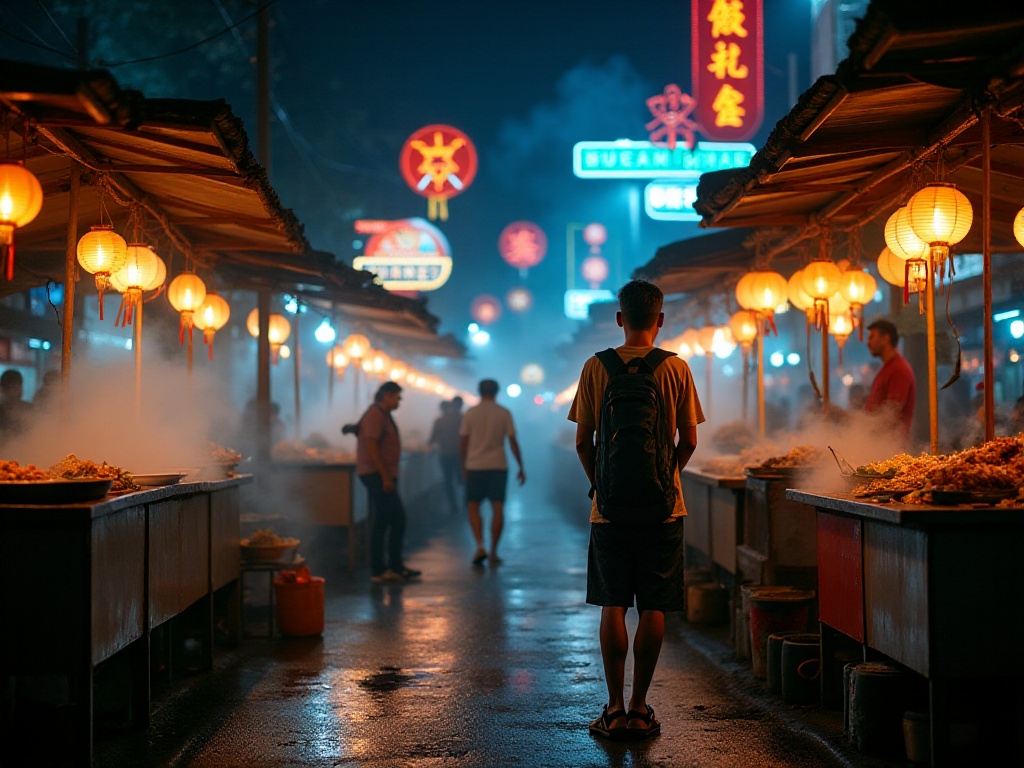
"Am I suited to be a backpacker?" This is probably a question many people ask. Honestly, backpackers come in many types. Based on my observations and various survey data, young people aged 18-30 form the majority of backpackers, accounting for about 65%. This age group typically has an adventurous spirit, strong adaptability, and relatively flexible time.
But this absolutely doesn't mean people of other ages aren't suited for backpacking. I know a retired couple in their 60s who treat backpacking as their second life. They choose different countries each year, traveling slowly and observing carefully. The couple says they were busy with work and family when young, and now they finally have time to properly see the world. Their story shows us that backpacking is suitable for anyone with a young heart.
Once in Greece, I met a university professor traveling alone. She said she chooses a country for backpacking every summer vacation, making her classes more interesting and her life more colorful. There's also a couple traveling around the world with their 5-year-old child, believing it's the best education for their kid.
Actually, people suited for backpacking often share these traits: willingness to try new things, ability to accept changes in plans, openness to different cultures, and basic self-care abilities. If you think you have these qualities, congratulations - you're natural backpacker material.
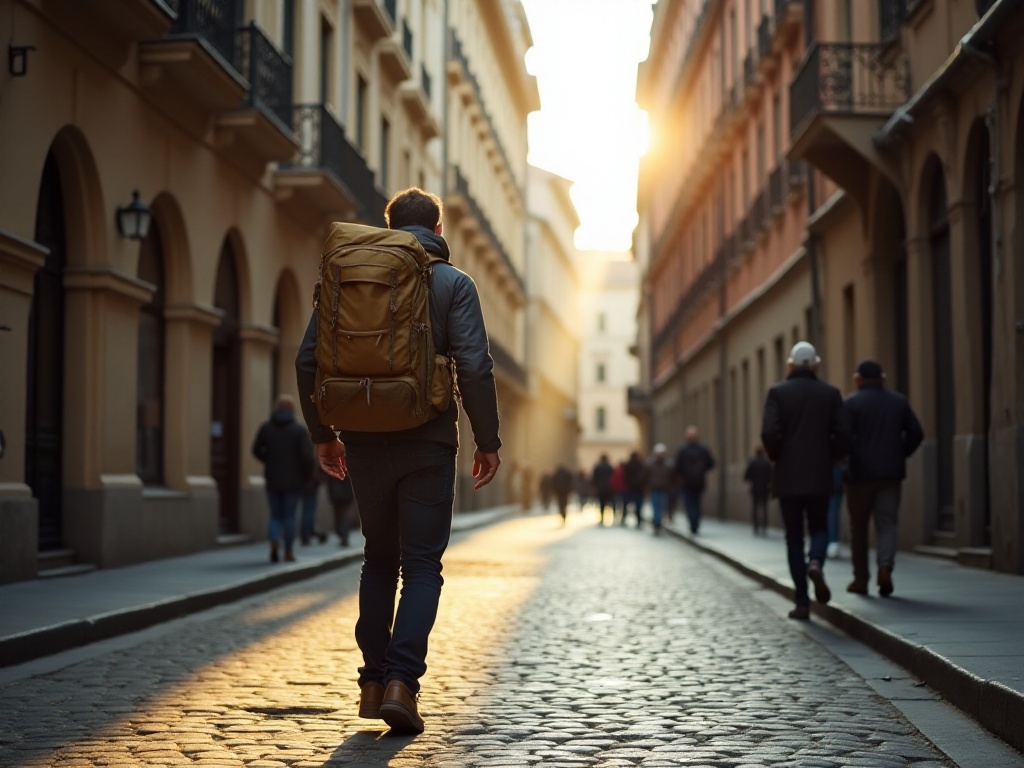
Speaking of backpacks, this is truly a subject worth studying carefully. I remember my first backpack purchase - like a rookie, I just bought one that looked good, only to deeply regret it after walking a short distance. It was heavy, impractical, and the shoulder straps kept slipping - a complete nightmare.
Through years of experience, I've concluded that for 7-15 day trips, a 40-60 liter backpack capacity is most suitable. When choosing a backpack, pay attention to these points: first, weight - the empty pack should not exceed 2 kg; second, structure - it should have reasonable compartments and preferably anti-theft hidden pockets; third, material - it should be waterproof and durable; most importantly, you must try it on.
I suggest trying backpacks in physical stores, not just looking at pictures online. Like shoes, the same model feels different on different people. When trying on, add weight (stores usually provide this), walk around for about ten minutes, and check if the shoulder and waist straps are comfortable and if the back support is suitable.
Besides the main pack, I strongly recommend getting a 10-15 liter daypack. This smaller bag is for carrying frequently used items like cameras, water bottles, and umbrellas, and can serve as a day bag at your destination.
Regarding equipment, many beginners tend to pack too much. Remember one principle: don't pack too much of what you can buy locally. For example, only bring 3-5 days' worth of toiletries and buy more locally when needed. The same goes for clothes - 4-5 sets are enough for a 7-day trip, as you can wash them at your accommodation or laundromats.
Here's my packing list: - Clothes: Mainly quick-dry clothes in dark, easy-to-match colors - Shoes: One pair of comfortable sneakers, one pair of light sandals - Electronics: Power adapter, power bank, charging cables - Toiletries: Toothbrush and toothpaste, travel towel, small bottles of washing supplies - Medical supplies: Band-aids, cold medicine, digestive medicine, pain relievers - Documents: Passport, bank cards, insurance documents, emergency contact information - Others: Umbrella, eye mask, earplugs, basic cosmetics
Remember, your backpack is like your mobile home - choosing the right one makes your journey twice as efficient. Bringing too much becomes a burden and affects your travel mood.
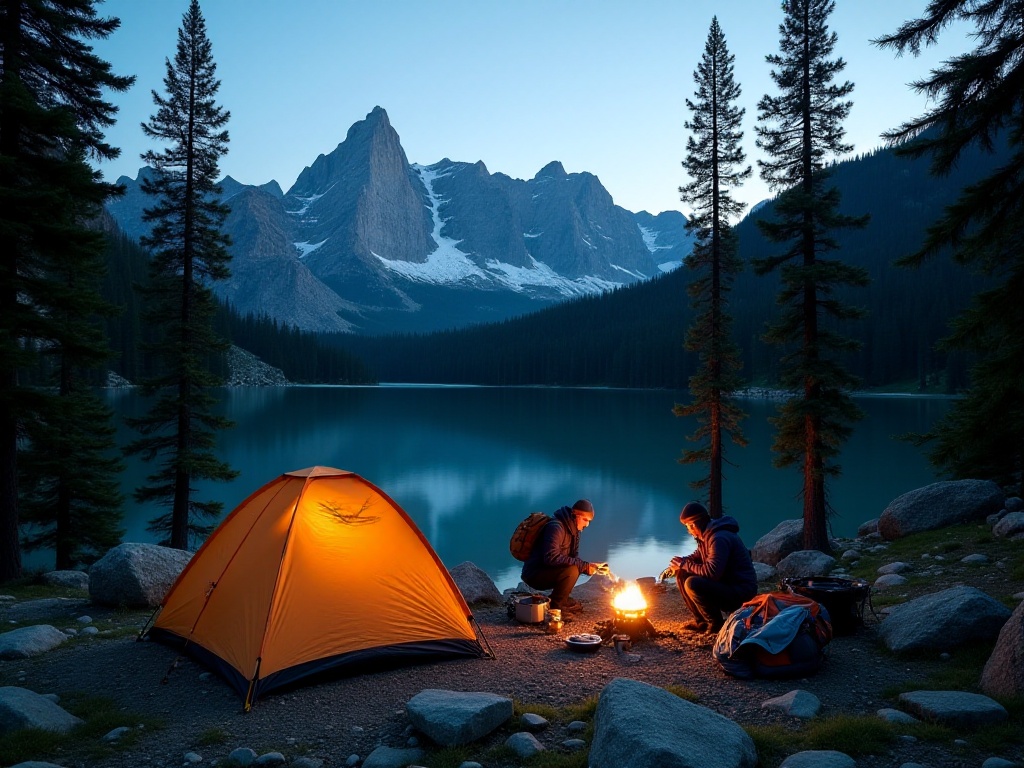
For novice backpackers, I strongly recommend starting your backpacking journey in Western Europe. Why? Because Western Europe has excellent tourist infrastructure, high safety standards, and widespread English usage, so language barriers aren't a major concern. According to 2023 data, backpacker reception in cities like Paris, Amsterdam, and Berlin increased by 30% year-over-year, indicating that Western Europe is indeed an ideal choice for backpackers.
My first backpacking trip was in Western Europe, following the route Amsterdam-Brussels-Paris-Zurich. This classic route remains popular today because these cities are moderately distanced from each other, have convenient transportation, and each has its unique charm.
When planning your itinerary, I recommend following the "slow travel" concept. Many beginners try to visit every possible place, ending up exhausted and leaving without truly understanding anything. Based on my experience, you should allocate at least 3-4 days for a major city to really experience its flavor.
For example, in Paris, you can visit must-see attractions like the Eiffel Tower and the Louvre on the first day, explore the artistic atmosphere of Montmartre on the second day, and on the third day, live like a local - walking along the Seine, having coffee at outdoor cafes, browsing flea markets. This is real travel.
Itinerary planning should maintain some flexibility. Sometimes you might find a place you particularly like and want to stay longer, or meet like-minded travelers and want to change your route - these are all normal occurrences. Therefore, I suggest not booking accommodation for too long at once, and consider flexible train tickets.
When determining your itinerary, also consider seasonal factors. For instance, many local shops in Paris close in August as locals go on vacation, while Amsterdam, though cold in December, has particularly lively Christmas markets. These are things you need to research in advance.
Regarding accommodation, this is indeed a major concern for many beginners. But actually, there are many interesting options. Youth hostels are a very good choice. According to recent statistics, the average price of hostels in major European cities is 15-25 euros per night, over 70% cheaper than hotels.
Hostels aren't just cheap; more importantly, they have a great social atmosphere. People come from all over the world, chatting in common areas at night, sharing travel experiences, and recommending places to visit. In a Prague hostel, I met a Japanese girl, and we later traveled to Vienna together and still keep in touch. These chance meetings and friendships are the greatest charm of hostels.
When choosing a hostel, pay attention to these points: Good location, preferably in the city center or near convenient transportation Check ratings and reviews, especially regarding cleanliness and safety Confirm if lockers are provided, which is important for backpackers Check if there's a communal kitchen, as cooking your own meals can save money See if free breakfast and WiFi are included
Besides hostels, there are many other options. For instance, Airbnb lets you rent local homes for the most authentic experience. Or Couchsurfing, which requires some social skills and courage but allows you to meet interesting locals.
I tried Couchsurfing in Milan, staying with an Italian designer. He not only introduced me to many off-the-beaten-path spots in Milan but also took me to local art exhibitions - experiences you'd never get staying in a hotel.
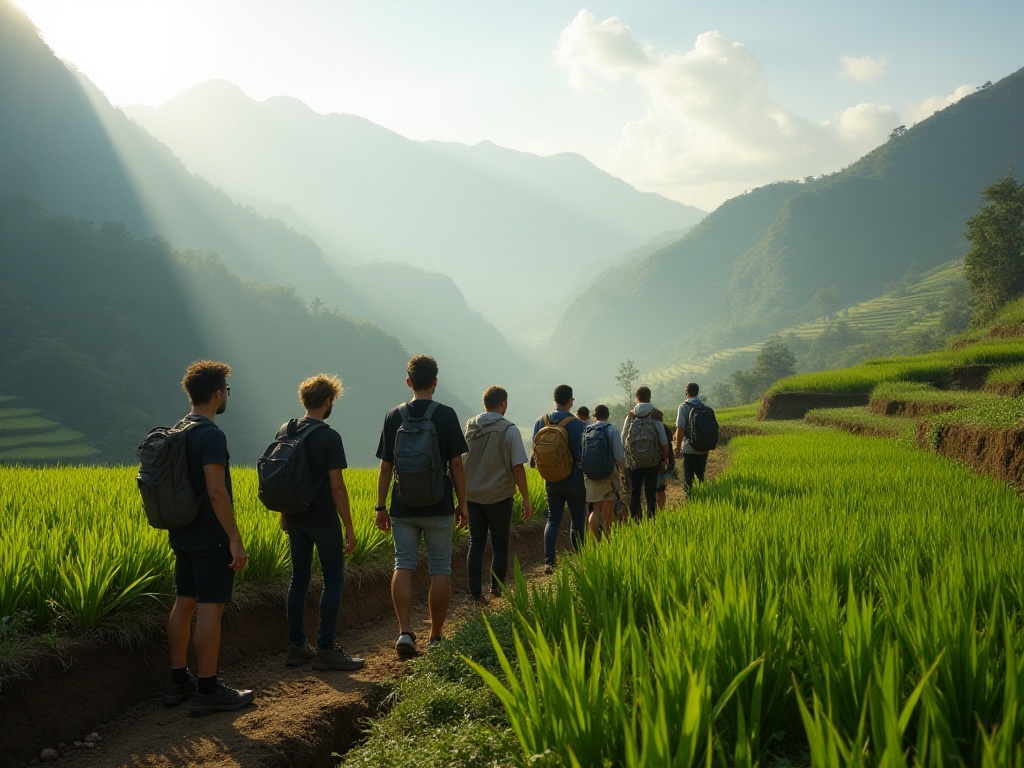
For traveling in Europe, my advice is: take trains instead of planes when possible. Though flying seems faster, when you add time for getting to the airport and security checks, it's not necessarily time-saving. Plus, train stations are usually in city centers, which is very convenient.
The Eurail Pass, while seeming expensive upfront, can be very cost-effective if planned well. 2023 data shows that a one-month Eurail Pass can save you an average of 45% on transportation costs. Moreover, train travel itself is an experience - you can enjoy the scenery, have coffee in the dining car, or chat with your seatmate.
I particularly enjoy night trains - they save a night's accommodation cost, and you wake up in a new city, which feels magical. Once on a night train from Paris to Venice, I chose a six-person compartment and stayed up late chatting with travelers from different countries. The next morning, drawing back the curtains to see the Alps sunrise was an unforgettable experience.
For city transportation, I recommend walking or cycling. Many European cities have public bike systems that are very affordable, and cycling lets you see things you might miss on foot. Amsterdam is one of the best cities for cycling - riding along the canals and experiencing the charm of the old town is something you'll never get from taking the metro.
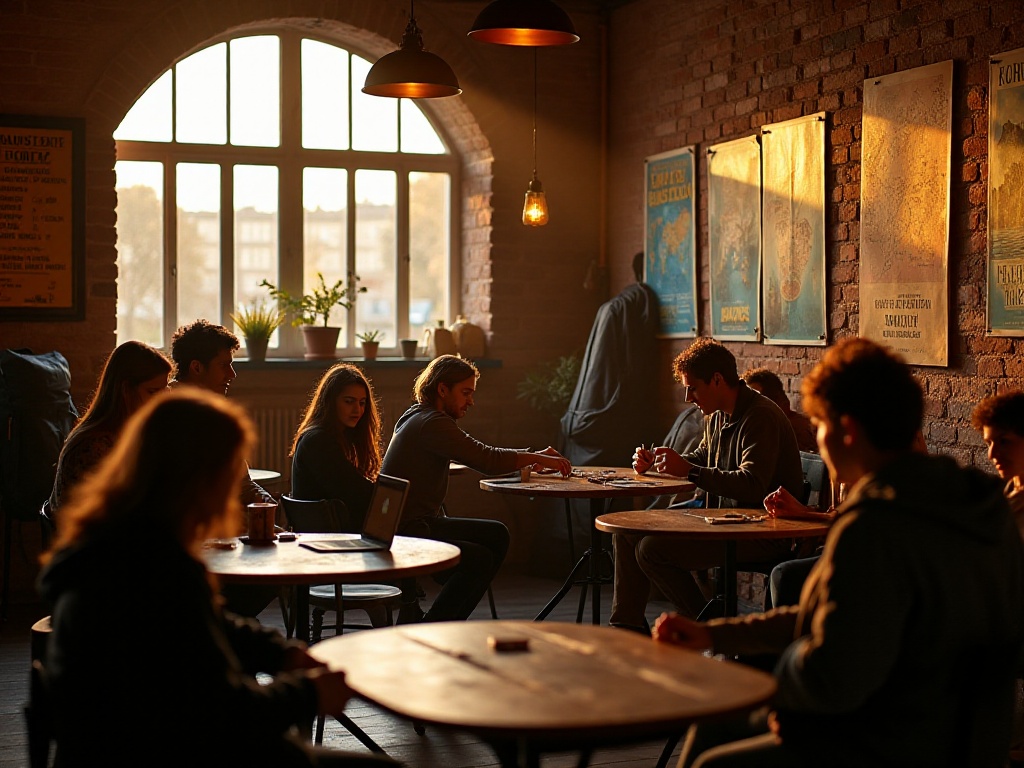
One of the biggest attractions of backpacking is its low cost. From my experience, 50 euros per day is completely sufficient in Europe: 15 euros for hostel, 20 euros for food, 15 euros for transportation and attraction tickets. If you're good at using money-saving techniques, you can reduce costs by another 20%.
First is accommodation - besides choosing hostels, you can save money by booking in advance, traveling in off-season, or staying on the city outskirts. Many hostels offer work-for-stay opportunities where you can get free accommodation for a few hours of work daily.
For food, the most economical way is to cook yourself. Hostels usually have communal kitchens where you can buy simple ingredients from supermarkets to make pasta or sandwiches. This not only saves money but also allows you to share food with other travelers, which is fun.
When eating out, lunch is cheaper than dinner, with many restaurants offering lunch sets. You can also find student cafeterias in university areas, which are very affordable. Street food is also a good option - both economical and locally authentic.
There are many ways to save on attraction tickets too. Many museums have free admission times - for example, the Louvre is free on the first Sunday of each month. City passes can be worth it if you plan to visit many attractions, like the Paris Museum Pass.
For transportation, besides the Eurail Pass, you can choose long-distance buses - they take longer but are much cheaper. Within cities, transportation cards are usually cheaper than single tickets.
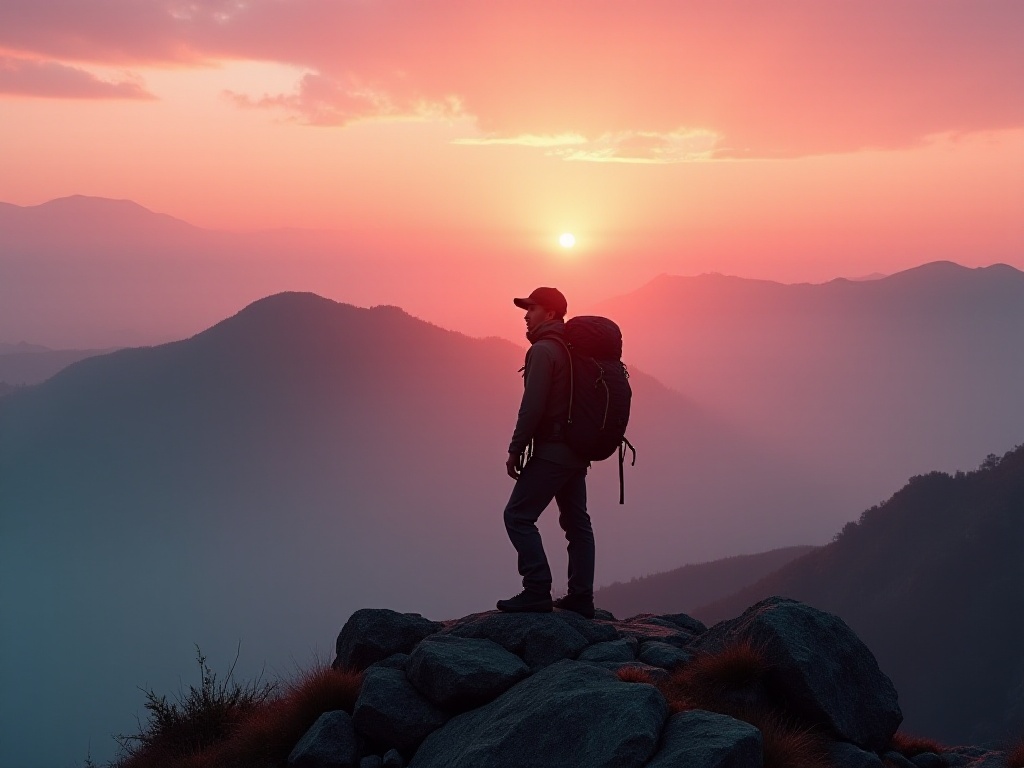
Safety always comes first. Although according to 2023 surveys, 90% of backpackers reported no serious safety issues during their travels, we still need to stay vigilant.
First is document safety. Make several copies of important documents like passports and credit cards, and store them separately. Keep originals in an anti-theft bag worn close to your body, copies in your backpack, and scan copies in the cloud. Also distribute cash in different places, don't keep all your money in one spot.
Next is personal safety. While Europe is generally very safe, be careful of pickpockets in tourist hotspots. Keep your backpack with you at all times, don't let strangers watch your luggage. In crowded places, wear your backpack on your front. Avoid going to secluded areas alone at night, and if you get lost, enter nearby shops or cafes to ask for directions.
Accommodation safety is also important. When choosing hostels, check reviews, especially regarding safety. When staying in dormitories, keep valuables in lockers with your own lock. Female travelers might feel safer choosing female-only dorms.
Backpacking isn't just a way of traveling - it's a life attitude. It teaches you independent thinking, develops your adaptability, and helps you learn to interact with people from different cultural backgrounds. Through backpacking, you'll discover the world is both bigger and smaller than you imagined.
Everyone's first backpacking trip is an adventure and a journey of self-discovery. You might face some difficulties, but these challenges ultimately become precious experiences. Like when I got lost in Venice - if I hadn't gotten lost, I wouldn't have met that friendly Italian gentleman and heard those interesting Venice stories.
Are you feeling the urge to go now? Remember, the first step of travel is often the hardest, but once you take that step, you'll discover a whole new world waiting for you. Let go of your concerns, pack your bags, and start your backpacking journey!
Over the years, I've been to many places and met many people. Each journey has helped me grow, each encounter has moved me. Backpacking has changed how I see the world and changed me as a person. I hope you can also find your own amazing stories through backpacking.
What are your thoughts about backpacking? Feel free to share your questions or experiences in the comments. In the next article, I'll specifically discuss how to plan your first backpacking trip - remember to follow.
 Previous
Previous
